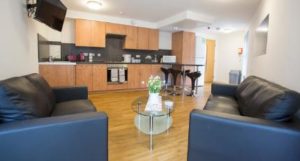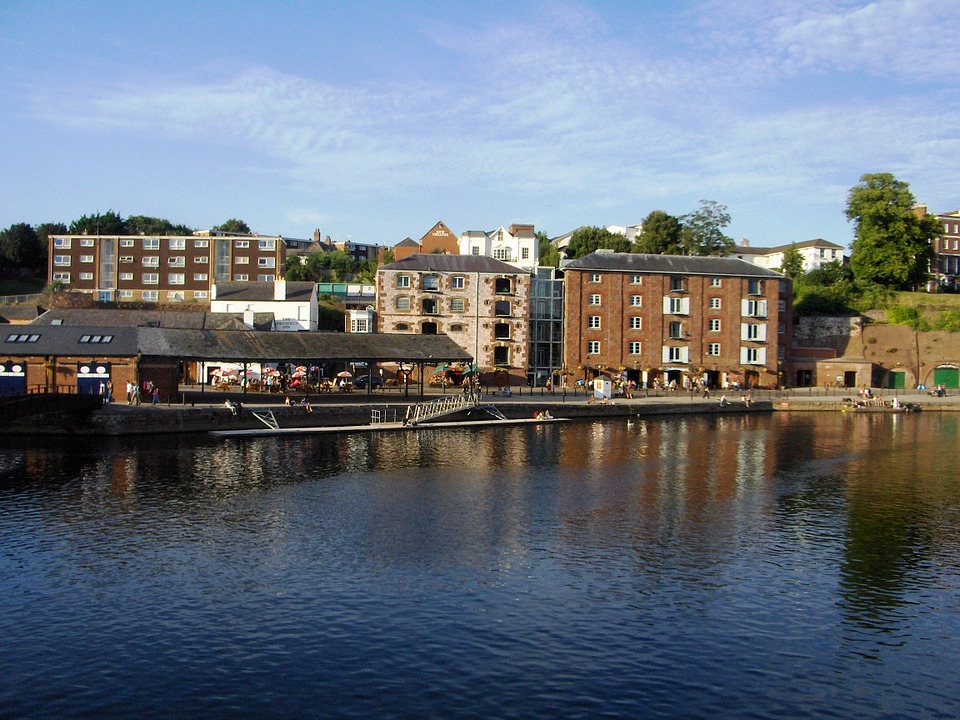
We hope you had a lovely weekend! In today’s blog, we wanted to talk you through housing options in the city and what resources are available to support you. Perhaps you are looking for something different to meet your requirements? Or maybe you just want to weigh up all your options before making an application for accommodation.
If you’re wondering where to start, don’t worry. We have lots of helpful information to share with you, so put the kettle on, make a cup of your favourite hot beverage and have a read of today’s blog.
Living in the city
Exeter is a vibrant city that offers students a great mix of so many things – history, culture, nature, shops and nightlife! Living within the city is a big part of university life. There are lots of different options and resources available to help you find a place that you can call home during your time studying here.
Where do I start?
Thinking about the all important four ‘P’s’ is a good place to start: Price, Place, People and Paperwork…
 My mum used to say to me ‘Is it a necessity or a want?’. This was a good question and always delivered with some practical advice! Meeting my weekly budget was a necessity and thinking about what I could afford then helped shape my ‘wants’ a bit more.
My mum used to say to me ‘Is it a necessity or a want?’. This was a good question and always delivered with some practical advice! Meeting my weekly budget was a necessity and thinking about what I could afford then helped shape my ‘wants’ a bit more.
My ‘necessity’ was the price, which had to meet my requirements, and knowing this helped point me in the direction of where I could look for a place to stay.
Sometimes meeting your weekly budget requirements means looking a little further outside of the city centre. There are lots of great locations such as St James, St David’s, Mount Pleasant, Pinhoe Road, Monks Road and St Leonard’s.
There are good transport links with regular buses coming in and out of the city centre throughout the day and night. These locations all adjoin the city centre, and are within easy walking distance of the high street shopping areas.
Areas close to Streatham campus are Pennsylvania, Stoke Hill, St David’s, St Thomas and Mount Pleasant. If you are attending both campuses, areas close to Streatham and St Luke’s are St James, Mount Pleasant and the city centre. If you are studying only at St Luke’s, residential areas that are close to the campus are Heavitree, Newtown and St Leonard’s. Our maps webpage can help you visualise walking distances and locations a bit easier.
Being a sociable person, I liked the idea of living in a shared house when I moved into Exeter, and that also met my weekly  budget requirements. If you are living in a shared environment, then the people are also important. Sharing gives you the option to think about if you want to live with friends or find a place to stay where you will have lots of opportunities to meet people.
budget requirements. If you are living in a shared environment, then the people are also important. Sharing gives you the option to think about if you want to live with friends or find a place to stay where you will have lots of opportunities to meet people.
Once you have found somewhere that you think is going to meet your requirements, you then move towards completing the necessary paperwork . This then forms a contractual agreement with the landlord. It’s really important to make sure you know what you’re signing up to and what type of contract you are entering into.
 Are you signing an individual or joint tenancy agreement? What does the landlord commit to doing and what is your responsibility? Are bills included or extra? These are all things to think about and make sure you understand before you sign on the dotted line.
Are you signing an individual or joint tenancy agreement? What does the landlord commit to doing and what is your responsibility? Are bills included or extra? These are all things to think about and make sure you understand before you sign on the dotted line.
A ‘Tenancy Agreement’ is a legally binding document so don’t be afraid to ask questions first if there is anything you are unsure of.
Where do I look?
There are lots of available resources that can help you in your search for accommodation. Studentpad is the University’s official student accommodation search engine. It’s free to use and you can search for student houses, flats and lodgings in Exeter. There is a helpful video that you can watch which shows you how to use Studentpad. You can search by accommodation type, number of bedrooms or the weekly rent price.
In the property description, landlords include an overview of the house to give potential tenants an idea of who this might suit, for example, a postgraduate looking for a quieter place to live and study. Most landlords include photos of the property, bedrooms and living spaces. You can also contact the landlord directly to ask more questions to see if their house would make a good home for you.
Living with a host family
Another good option to consider could be living with a host family. This is also known as a ‘homestay’ let or ‘lodging’, where you would be sharing the house with the the resident landlord or host family who live there. It’s a great way to feel part of life here in Exeter and settle into a homely environment straight away.

These types of lets are listed on the Studentpad website search page under ‘Living Arrangements’ and ‘Resident Landlord/Host Family’.
Homestay accommodation is only usually advertised 6-8 weeks before the start of the academic year.
Here’s how to search for homestay lets on Studentpad:
- Use the ‘Contract Type?’ box to select ‘Short Lets’ (up to 23 weeks) or ‘Short/Long lets’ (so that only properties available for short term letting are displayed).
- Homestay search: Use the ‘Living arrangement?’ box to select ‘Resident Landlord/Host Family’.
You can find out more information by visiting our webpage here.
Private student accommodation
There are a lot of purpose-built private halls of residence within the city which offer individual tenancies. These tend to be similar to University accommodation with cluster flats or en-suite and studio rooms available for all-inclusive rents. Many of the private residences also offer social spaces where you can have the opportunity to meet other students and form new friendships.
 There are a variety of locations, prices and contract lengths available. Some private providers will offer shorter contract lengths, such as 17 week lets for example, for Semester One students. However, they don’t always advertise this until later in the summer towards the middle or end of August. If there is a particular private student residence that you are interested in, it would be worthwhile contacting them directly so that they can keep you updated on their availability for short term lets.
There are a variety of locations, prices and contract lengths available. Some private providers will offer shorter contract lengths, such as 17 week lets for example, for Semester One students. However, they don’t always advertise this until later in the summer towards the middle or end of August. If there is a particular private student residence that you are interested in, it would be worthwhile contacting them directly so that they can keep you updated on their availability for short term lets.
You can find out more information on our private housing webpage.
Student Community Wardens
If you are going to be staying in the city, outside of University accommodation, you won’t be alone and we are still here for you. Our team of Student Community Wardens work closely with the Students’ Guild, Devon and Cornwall Constabulary and Exeter City Council to support students living off campus. They are here to help you integrate into the community and settle into student life.
We hope you have found today’s blog helpful in supporting you in your search for private housing. There are lots of options out there. Once you know how and where to start, you can narrow down your search and find something just right for you. If you do have any questions, please contact us and we will be happy to help.
Wishing you a wonderful week!
Accommodation Priscilla

